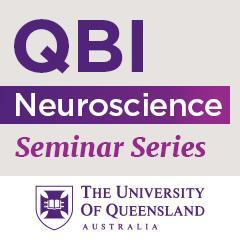Synapse formation in the CNS - learning lessons from the neuromuscular junction

Speaker: Professor Stephan Kröger
Ludwig Maximilians University Munich
Germany
Title: Synapse formation in the CNS - learning lessons from the neuromuscular junction
Abstract: The establishment of functional synaptic communication sites is a key event during nervous system development. However, how synapses are assembled to form a neural circuit, and how the specificity of these synaptic connections is achieved, is largely unknown. In particular, the molecular mechanisms required for the formation of the pre- and postsynaptic specializations in the CNS are still an enigma. In contrast, at the neuromuscular junction (NMJ), synaptogenesis is rather well understood. The key organizer at this particular synapse is the extracellular matrix proteoglycan agrin. Studies over the last 3 decades have shown that the interaction of agrin with its receptor complex consisting of the tyrosine kinase MuSK and the agrin-binding protein Lrp4 activates a signalling cascade leading to the formation of all pre- and postsynaptic specializations, including aggregates containing the AChR as well as synapse-specific gene expression by synaptic nuclei.
Agrin is also expressed in the brain and concentrated at CNS synapses but its role in the developing CNS is only poorly understood. In his presentation, Stephan Kröger will provide evidence for a role of the transmembrane form of agrin (TM-agrin) during CNS synaptogenesis. Analysing cultures of CNS neurons as well as brains from wildtype and genetically modified mice demonstrated that a lack of agrin or of the agrin receptor complex reduces the number of synapses in the CNS. Conversely, overexpression of agrin or of its receptor complex increases the number of synapses. Excitatory and inhibitory synapses are differentially affected and molecular mapping revealed that the sites within TM-agrin responsible for its effect on inhibitory and excitatory synapses are distinct. Finally, analysis of the interactome of TM-agrin in the CNS revealed a direct interaction of TM-agrin with the AMPA receptor-associated protein Shisa6. Collectively, these results confirm a role of TM-agrin during CNS synaptogenesis and identify a novel TM-agrin interacting protein at interneuronal synapses.
About Neuroscience Seminars
Neuroscience seminars at the QBI play a major role in the advancement of neuroscience in the Asia-Pacific region. The primary goal of these seminars is to promote excellence in neuroscience through the exchange of ideas, establishing new collaborations and augmenting partnerships already in place.
Seminars in the QBI Auditorium on Level 7 are held on Wednesdays at 12-1pm, which are sometimes simulcast on Zoom (with approval from the speaker). We also occassionally hold seminars from international speakers via Zoom. The days and times of these seminars will vary depending on the time zone of the speaker. Please see each seminar listed below for details.



